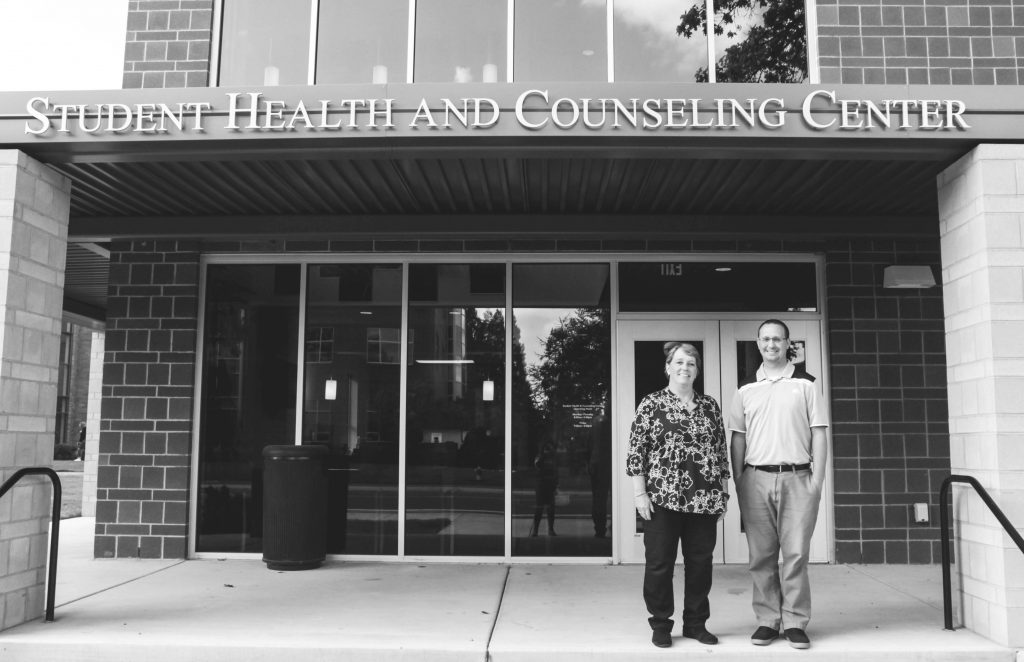
Rebecca Meyers | Lifestyle editor
Students have many helpful resources on campus for a variety of needs. One such resource is the newly opened Student Health and Counseling Center. The center offers certain health services free to students taking at least six credits. These services include counseling and mental health assistance. To get an idea of student health patterns from the perspective of a staff member, I sat down with Assistant Director of Wellness Education Craig Wimmer and Wellness Educator Pam Medzegian of the SHCC about the most common causes of student visits and what we can learn from these experiences.
In response to the question of advice the SHCC wants students to know, the answer is first and foremost that students should not hesitate or feel embarassed to make an appointment or come in. The staff is there to help solve problems and help educate about preventative care. Wimmer also notes that students should make an effort to be health conscious even when healthy.
“If we’re talking about traditional students, they’re in a pretty good place in their lives in terms of their overall health. They’re not thinking about chronic long term things. So I think this is a point in their lives where they start to learn why these things are important.” said Wimmer.
I asked whether there was any advice they had that for students that might be helpful in saving them a trip to the clinic. Instead, I got somewhat different, but more helpful advice.
“It’s not necessary to wait until you have a problem; until you’re sick or you’re having a mental health crisis,” he told me. Wimmer and Medzegian’s focus at the SHCC is preventative health, meaning they’re there to help students avoid having preventable health issues. They explain that it’s better to visit for something minor and avoid having a bigger problem surface later, even if it just means stopping by to pick up a free cold kit.
Students can also make appointments for 30 minutes in the new R&R room, which includes a massage chair, space to meditate, a range of music or sounds to choose from and a full spectrum light to help clients with Seasonal Affective Disorder. Staff like these two also have outreach events such as ones that involve alcohol education and, most recently, free flu immunizations on campus.
“In general, I think society tends to treat mental health better, and that gives us access to students needing support,” Wimmer said in response to the number of counseling clients, which has a seen a sharp upturn this year. The good news is that this means many students are taking full advantage of the resources available to them and are taking the time to invest in mental health.
College is a time of learning to take care of oneself and direct their own lives. This includes taking time to invest in self-care and health, both physical and mental. When flu season hits, or anxiety starts to kick in, the SHCC staff is there to help see students through the challenge.
Contact the author at howllifestyle@wou.edu
Photo courtesy of Rebecca Meyers

